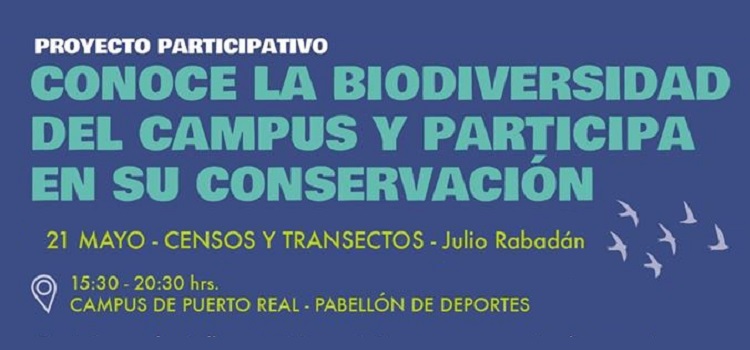Durante esta tercera jornada exploraremos diferentes herramientas de ciencia ciudadana para conocer sus capacidades y las posibilidades que nos brindan a la hora de realizar nuestros propios muestreos.
Contaremos con la colaboración de Julio Rabadán, de la plataforma de ciencia ciudadana Observados que nos dará las claves para sacarle el máximo partido a esta herramienta.
Se dará una breve explicación a las técnicas de muestreo más frecuentes (bioblitz, transectos lineales y parcelas de muestreo). Se realizarán una serie de transectos lineales por el Campus para determinar la abundancia y riqueza de especies de flora y fauna así como para identificar impactos tales como basuras, vertidos, focos de contaminación acústica…


